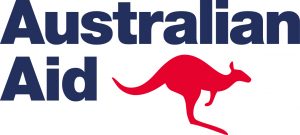
Atta Qaher Al-Khatib, member of The Ramallah Deaf Association.
Amidst the significant challenges facing organisations serving individuals with disabilities, the Ramallah Deaf Association has emerged as an inspiring success story in transforming these challenges into real opportunities. Originally reliant on donations to cover its expenses, the society has achieved a transformative leap through its active participation in the MA’AN Development Center–Union Aid Abroad-APHEDA’s project ‘Cooperative Associations Support and Empowerment’, becoming a model of self-reliance today.
The journey began when members decided they could transform their situation from dependence on others to self-sufficiency. This transformation materialised in the establishment of a food manufacturing unit, which became not only a sustainable income source but also a major turning point for them. The project successfully enhanced their capabilities through the training and empowerment of 19 members. Ten of them now work in the food manufacturing unit, while others hold administrative positions within society. This distribution has not only secured a financial future for the society but also strengthened its cohesion and independence.
One member shared, “This capacity-building initiative has had a significant impact on me, even extending to my own business as a barber. I now understand concepts and strategies that never occurred to me before.”
This sentiment reflects how the training provided not only benefited society as a whole but also had a profound personal impact on individuals, enabling them to apply new skills in their own ventures.
The impact of the project goes beyond financial gains; it has had profound psychological and social effects. It has shifted the perception of the Deaf Association from being a charity in need of sympathy and support to a productive entity that offers real value to the community. In the coming period, the association will be known for its contribution to the local economy through the production and sale of its food products, earning a new reputation built on respect and appreciation.
Another member expressed, “I used to be a tough leader, convinced that my approach was correct. However, this project helped me realize that I was often toxic in my leadership style. My stress and frustration, stemming from the challenges of being Deaf and feeling unheard in the community, contributed to this. I now believe that effective leadership and communication can truly make a difference in our lives. This project has taught me that resolving issues and leading with empathy and understanding is far more impactful.”
Psychological and social benefits
The project’s impact extends beyond ensuring sustainable income for society to include personal development and enhancing members’ self-confidence. Through psychological training sessions, members have gained a greater awareness of their role in society and their ability to contribute to social and economic development. They now see themselves not only as capable individuals able to work and produce but also as active contributors to improving the lives of others.
“As a deaf individual, I once believed that my education would always lag behind. However, my perspective changed dramatically when I experienced the power of teamwork through a simple game. This game revealed to me the profound truth of ‘we do better together’ and showed me that certain achievements are only possible when we collaborate as a group. This is a point that this project changed me forever, highlighting the incredible value of working together to overcome challenges and reach our goals.” – Atta Qaher Al-Khatib, Member of the Ramallah Deaf Association.
The success of the Ramallah Deaf Association today is the fruit of their belief in their abilities and collective efforts. It is a story of transformation from dependence on donations to self-reliance and from sympathy to recognition of their true capabilities and potential. This story is not just a financial success but a living testament to the power of will and belief in the latent abilities of every individual, no matter the challenges they face.
The ‘Capacity building for women cooperatives’ project is supported by the Australian Government through the Australian NGO Cooperation Program (ANCP) and the Australian Education Union.
